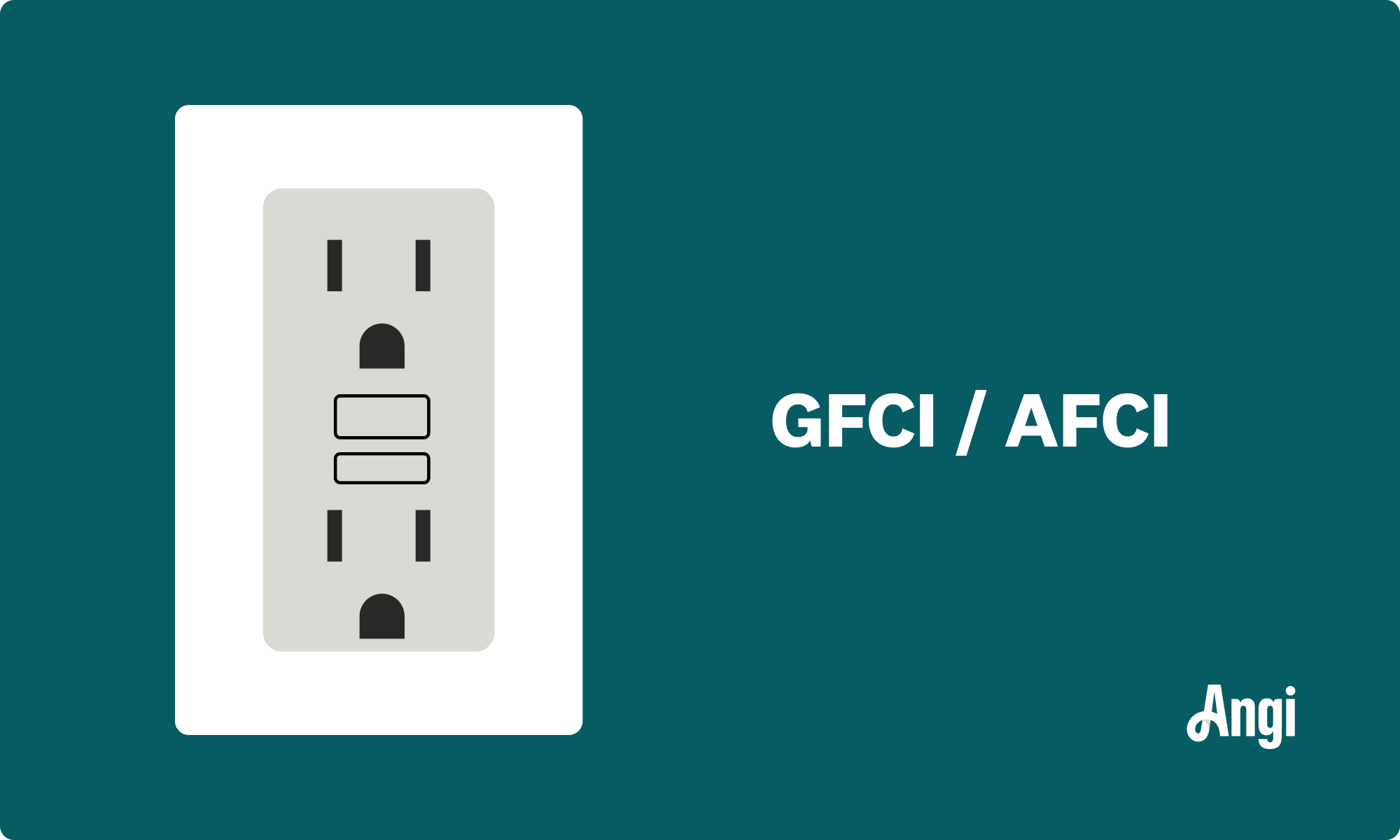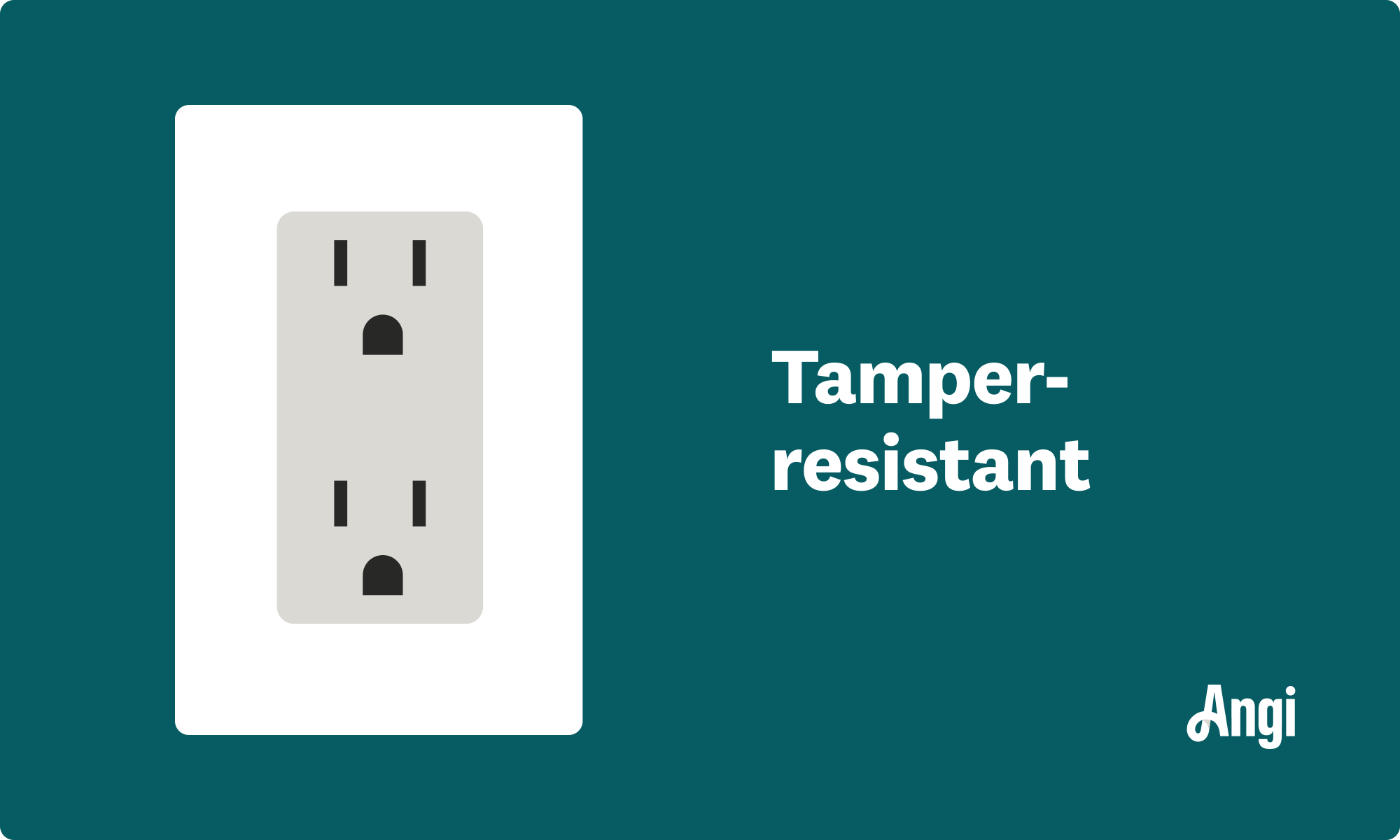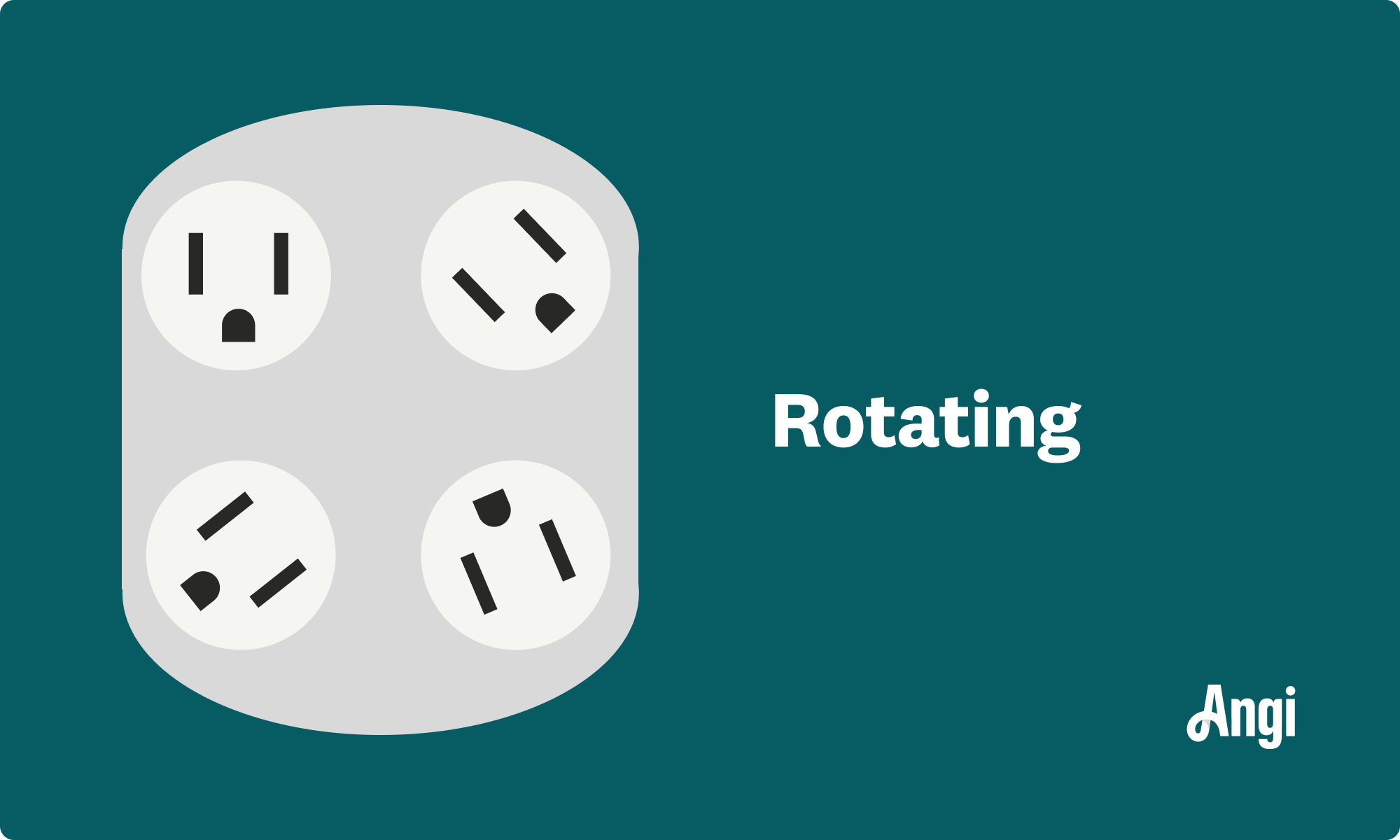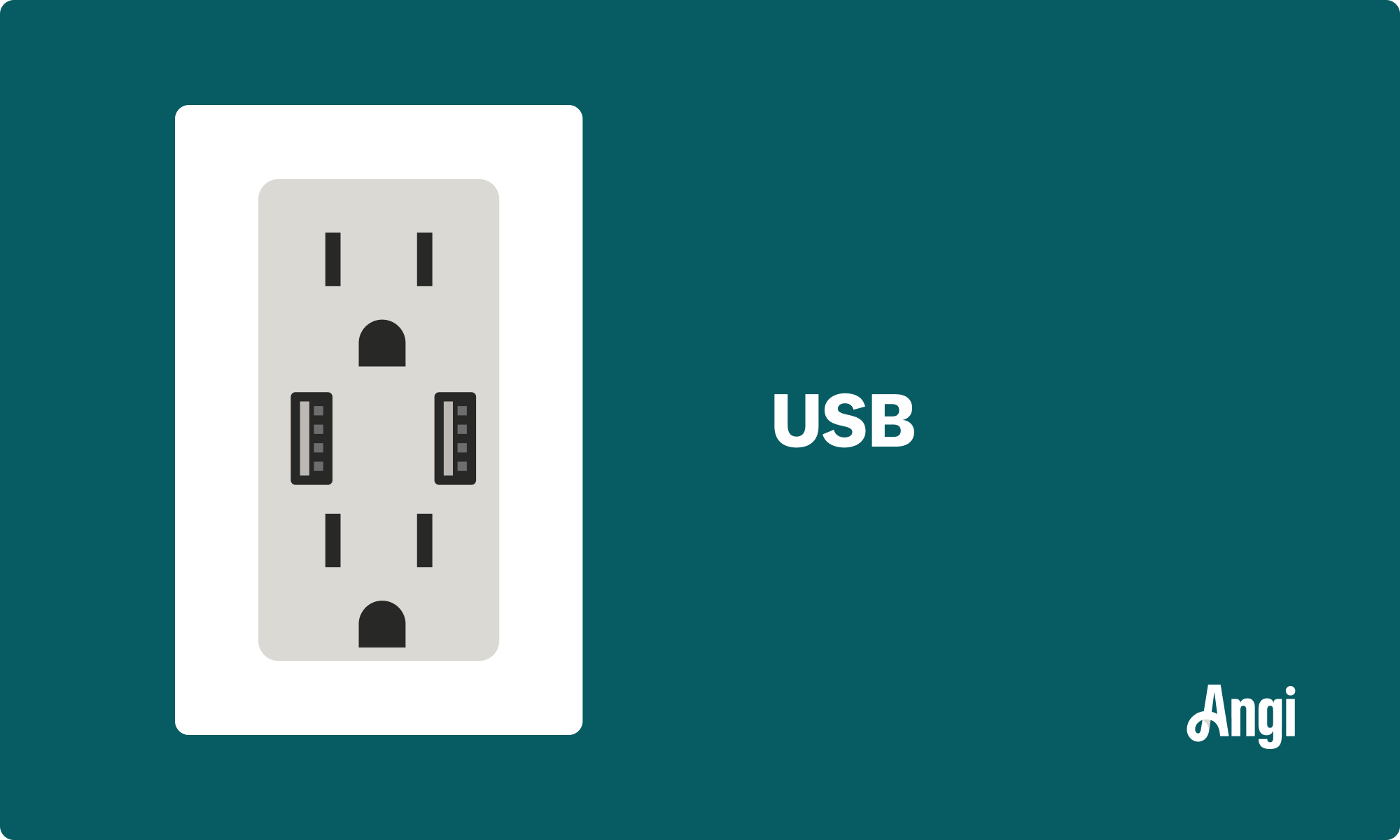How Much Does It Cost to Install an Outlet? [2024 Data]
Normal range: $130 - $300
Electricians typically charge by the receptacle, so the cost to install an outlet largely varies on how many you wish to install in your home. On average, homeowners will spend between $75 and $485 to install an outlet.


The cost to install an outlet ranges between $75 to $485 per outlet. Electrical outlets—also known as sockets or wall plugs—play a big role in your day-to-day life. It helps you warm your food, watch tv, and wash and dry your clothes. But when your outlet isn’t working, is outdated, or not serving its purpose, it’s time to hire a local electrician to install a new one.
The price of installing an outlet varies based on factors like the type of outlet, project size, your electrician’s rate, and more. This guide will help you plan how much you should budget to install electrical outlets in your home.
- Average
- $300
- Low end
- $75
- high end
- $485
Individual Costs for Electrical Outlets
The cost to install an outlet is $130 to $300 per outlet on average. The cost depends on various factors, such as the type of electrical outlet and project size.
“The cost to install a new outlet may seem expensive, but the added convenience and prolonged safety benefits may justify those prices,” explains electrician Salvatore Cutrona.
Cost to Install an Outlet by Type
| Outlet Type | Average Cost Per Outlet |
|---|---|
| Standard (120V) | $3–$5 |
| Heavy-duty (220V, 240V, 250V) | $10–$20 |
| GFCI | $7–$25 |
| AFCI | $20–$30 |
| Floor | $30–$50 |
| Coax | $5 |
| Tamper-resistant | $5–$10 |
| Smart | $25–$50 |
| Rotating | $8–$20 |
| Outdoor | $1,000–$1,400 |
| LED | $10–$30 |
| USB | $20–$40 |
| Recessed | $10–$60 |
| Ceiling | $3–$5 |
| TV | $3–$5 |
Since there are different electrical outlets, the chosen type will impact how much you’ll pay for installation. Let’s look at what price tag you can find on some common electrical outlet types. These are product costs only, not including the labor costs cited above.
Standard (120V) Two and Three Prong
The most common electrical outlet is the standard one with 120 volts, and that uses 15 amps to power up your small appliances or any device that needs 110 to 125 volts to run. They’re available with two or three prongs. To install one of these, it’ll cost $3 to $5 each, with two-prong outlets being on the lower end of this price range and three-prong on the higher end.

Heavy-Duty (220V, 240V, 250V)
Appliances like dryers and ovens require a little more power to run, so they use higher-voltage outlets. These heavy-duty options can come in 220V, 240V, and 250V, though the most commonly used one in residential homes is 220V. To install a heavy-duty electrical outlet, you'll pay between $10 and $20 per outlet.

GFCI
The Ground Fault Circuit Interrupter (GFCI) outlet has an internal surge protector that almost instantly cuts off the outlet’s power if a power surge or moisture is detected. That’s why they’re usually installed in areas where outlets are exposed to water or moisture, like bathrooms and kitchens. Building codes may require them in areas like laundry rooms, too. To install this electrical outlet in your home, expect to pay $7 to $25 each.
AFCI
The Arc-Fault Circuit Interrupter (AFCI) outlet's job is to quickly detect any electrical arcs in your system and cut off power to that circuit to avoid an electrical fire. They can average between $20 to $30 each.

Floor
Floor outlets let you use an outlet for your electrical needs, even if you’re not near a wall outlet. But because of their design, these outlets need to be protected to avoid stepping on them or getting them wet. They often come in a kit that costs $30 to $50 each.
Coax
The coax outlet, used for cable TV, costs around $5 for each receptacle. Installing a coax outlet is doable if you’re a DIY-savvy homeowner.
Tamper-Resistant
When there are small children in a home, most homeowners install a tamper-resistant, child-proofing outlet to keep their home a safe place for their little ones. These can cost $5 to $10 for each outlet (materials only), sometimes more for the more complicated outlets.

Smart
Smart outlets let you control the devices connected to the same outlet. Owners can shut them off remotely, set up schedules, and measure electricity usage through them. To install one, expect to pay $25 to $50 extra for capabilities.

Rotating
Most homeowners know how difficult it can be to get oddly shaped plugs on one outlet together, which is why a rotating outlet that can swivel 360 degrees is so appealing. They average around $8 to $20 an outlet.

Outdoor
Installing outdoor electrical outlets requires more experience with weather protection and safety when creating an outlet outdoors. Plus, this outlet should be GFCI and might require new wiring. All things considered, this project can cost $1,000 to $1,400 per outlet, if the outlet is installed away from your house and requires installing electrical lines in the ground.
LED Outlet
LED lights offer a set of LEDs at the bottom of the plate, usually combined with a motion sensor. This turns on an automatic night light when it’s dark, saving a spot on the outlet that would otherwise be used as a nightlight. These typically cost $10 to $30 depending on the type.
USB Outlet
A USB outlet has American standard electrical outlets, but then adds a USB port or two to power compatible electrical devices. USB standards and even physical port types shift over time, meaning you’ll need to replace these kinds of outlets more often than traditional outlets. Average prices are between $20 and $40.

Recessed Outlet
These outlets have faceplates with the outlet set an inch or so back into the wall. Some people prefer these to hide larger cord connectors, stopping them from protruding and potentially becoming a tripping hazard. These outlets vary greatly in cost, from $10 to $60 depending on the design.
Ceiling Outlet
Ceiling outlets don’t have the same requirements as floor outlets, so their costs tend to be the same as standard outlets, around $3 to $5. However, expect labor costs to be higher, as electricians typically have to do more work for a successful ceiling installation.
TV Outlet
A TV outlet is specifically designed for a TV placement, often over a fireplace. If there are no necessary additions like a coaxial cable, then standard rates of around $3 to $5 to install. However, as with ceiling outlets, electricians will likely charge more for labor.
Electrical Outlet Installation Cost Factors
What influences costs for the average home electrical outlet? Several factors account for the majority of costs. That includes important basics like:
Number of Outlets
Your total price to install an electrical outlet depends on the project size. For example, electricians typically charge by the receptacle for whole-house projects. The average price range to install an individual outlet is $130 to $300, and the table below provides an estimate for how much you can expect to pay per outlet.
| Number of Outlets | Average Cost Range |
|---|---|
| 1 | $130–$300 |
| 2 | $250–$600 |
| 3 | $400–$900 |
| 4 | $500–$1,200 |
| 5 | $650–$1,500 |
| 6 | $800–$1,800 |
| 7 | $950–$2,100 |
| 8 | $1,100–$2,400 |
| 9 | $1,200–$2,700 |
| 10 | $1,350–$3,000+ |
Location
Your preferred outlet’s location can also impact its cost. While some outlets don’t require much labor, others require more skills and time, such as GFCI and floor outlets. Electricians may charge extra for the extra time required to install outlets in difficult-to-reach locations, like behind large furniture or crawl spaces/
Current Wiring
If your electrician determines that you need new wiring for your outlet because your current wiring is faulty, damaged, or old, it’ll take extra time for them to fix it and can cost $540 to $2,100, depending on the severity.
Home Location
In addition to the material and labor costs, outlet installation pricing varies based on location. The costs can change depending on the local cost of living, the price of shipping materials to the area, and similar factors. Expect to pay significantly more for an outlet if your home is in a more urban area with a higher population.
Faceplate Materials
Many electricians will have standard plastic covers or plates to install when they put in an outlet. These are barely a cost consideration for most quotes, typically under $10 as a line item in the estimate. However, homeowners may want to order specialized panels that match their other décor for more customized work. The most expensive models may be finished in brushed metal surfaces made from nickel or bronze, which can add more than $100 to the cost.
Switches vs. Sockets
Most home outlets are destined to become sockets for plug-in power or switches for controlling lights. Costs for the two are very similar, in most circumstances, but if you’re installing an outlet that will become a switch, prices may go higher. That’s especially true if your outlet will power multiple switches, dimming switches, or other more complex setups.
Advanced Technology
Some outlet technology will add dollar signs to your installation project. We’ll cover the important examples in detail below so you know how much you may have to pay. For now, keep in mind that important additions like smart technology, USB ports, or even more common options like GFCI (Ground Fault Circuit Interrupter) will cost extra.
Labor Cost
While budgeting for installing outlets, don’t forget to include labor costs—since electricians usually charge by the hour. On average, an electrician charges $50 to $100 per hour. Some electricians may charge more for the labor of certain projects, such as GFCI or heavy-duty outlets, that are more labor-intensive to place in your home.
Type of Electrician
The type of electrical pro you hire for the job will also impact your final cost, as there are many different types of electricians. Electricians with more years of experience and expertise will likely charge you more for their services. For example, if you hire a master electrician—a highly experienced pro with more than 4,000 hours of work—you can pay anywhere from $90 to $150 per hour. Hiring electricians with less experience can cost $40 to $85 per hour.
Minimum Fees
Electricians also charge minimum fees, which cover the cost of travel, supplies, gas, and more. No matter how long the project takes, you’ll likely still end up paying for one to four hours of labor. Since outlets are primarily inexpensive and a licensed electrician can get it done in less than an hour, they usually charge a minimum fee of at least $100 to $200 per visit. So, make sure to get your money’s worth by hiring your electrician to complete multiple jobs in the span of one visit.
New Outlet vs. Replacement Cost
In many cases, you may have an existing outlet in an ideal location, but it needs an upgrade or the outlet isn't working and needs replacement. From the new tech and childproofing to converting to a higher voltage, replacing an outlet can yield many benefits. But will it cost less?
The good news is that replacing an outlet can result in a lower price, typically $3 to $5 per outlet, plus labor costs. There’s often less labor involved for the electrician, so they may cut their labor costs by $10 to $20 or even more. The bad news is that this is far from guaranteed: New outlet and outlet replacement costs—aside from any handy tech upgrades—are often the same. The table below can help you compare the average cost difference between getting an outlet replaced and opting for a whole new outlet.
| New Outlet Installation Cost | Replacement Outlet Installation Cost | |
|---|---|---|
| Low Cost | $75 | $60 |
| Average Cost | $100–$300 | $100–$150 |
| High Cost | $500 | $300 |
Additional Costs to Consider
There are a few unique cases that may lead to additional costs for very specific outlet situations. These include circumstances like:
Drywall Repairs
Installing or replacing new outlets may leave you in need of drywall repairs, which could cost anywhere from $300 to $900. Small projects may require only minor repairs (if any at all), while larger projects may require extensive repairs which will cost more.
Panel or Stud Issue
Your preferred location for an outlet may run into problems with metal panels, studs, or plumbing. You may still be able to get the outlet where you need it, but you may have to stack some remodeling costs on top of the installation price. This can go up to a few hundred dollars, depending on what needs to be done, and may be a bigger factor if you are considering a floor outlet, which can be more difficult to install.
Wiring Installation
Your outlet may be far removed from other electrical work and will require additional wiring installation. Alternatively, your old wiring in a location may be corroded and will need to be replaced. Electricians can handle this, but it will cost more, anywhere from $100 to $1,000, depending on how much new wiring you’ll need.
Electrical Permits
An electrical permit ensures that your project is in compliance with local construction and safety regulations. You won’t need an electrical permit for every project. But, for some larger electrical jobs, your electrician will need to obtain a permit. You’ll want to budget for this potential cost, which is typically $50 to $100.
DIY vs. Hiring a Pro
Electrical outlets seem like simple additions to your home. However, installing an electrical outlet is a task that’s better left to an experienced, licensed, and local electrician. This project involves, well, electricity and electrical wiring, meaning it requires safe handling to avoid an electrical emergency or home damage.
Installing outlets yourself is not a project that most DIYers should attempt, since one wrong action can result in an electrocution or fire hazard. Plus, if a house fire were to occur because of improper electrical work, your insurance company might not cover the damages. Lastly, there are building code requirements to adhere to that you might not know, but an experienced electrical pro will.
How You Can Save Money When Installing an Outlet
Hiring a professional is typically necessary for a new outlet, but there are still several ways you can cut down your costs.
Check for Wiring and Studs, and Choose a Convenient Location
The less labor an electrician has to do when installing an outlet, the faster the job and the less they may charge you. You can use a stud finder to check for studs and wiring or other obstructions in your walls, and narrow down exactly where you want the outlet to go. This step helps everyone save time ahead of an estimate.
Complete Outlet Installation Early on in Renovations
Are you remodeling a room or finishing a basement or attic? Arrange for outlet upgrades and wiring installation in the early stages, ahead of adding insulation and drywall. The earlier this visit, the easier it is for electricians to access your wiring and get the job done fast, which should be less pricey than deciding you need more outlets after the walls are finished.
Use Energy-Saving Features on Smart Outlets
Smart outlets have a high initial cost, but their ability to schedule turn-offs and measure electricity can help you save money. Over a few years, they may even pay for themselves with proper management.
Shop for Faceplates on Your Own
You can order specialized faceplates through your electrician, but you should check prices on your own, especially if you can compare them to an itemized cost. If you want a specific faceplate style or material, finding a discount online could save some of your budget.
The details above can help you figure out how to budget for many different outlet installations. Homeowners frequently have a few additional questions about this process, so let’s cover the important answers you should know.
Frequently Asked Questions
If all you want is to move an existing outlet to another area of your wall, it will likely cost $25 to $300. However, many factors can impact your final cost, including existing wiring, the type of outlet, and more. It’s always best to speak with a pro to get an individualized quote.
This type of conversion is easy—you’ll just need to upgrade to the correct amperage in your wires before wiring the new outlet. However, these projects can be tricky without intermediate electrical knowledge, so consider consulting a pro before flipping any switches on your circuit breaker.
It can take an electrician 30 minutes on average to install an outlet, but they’ll likely charge a minimum fee for one to two hours. If you have any additional electrical work you’d like them to perform, it could be worth an electrician’s while (and yours) to mention that ahead of time and bundle the tasks together.
It costs between $750 to $5,000 to install 10 outlets. The total cost to install 10 outlets will vary based on the type of outlet being installed, labor costs, the scope of the work, and additional costs that may arise such as for permits and repairs.
The total cost to install a 120V outlet will depend on the type of outlet you choose, labor costs, and any customizations. Standard 120 volt outlets usually cost $3 to $5 each. But say, for example, you customize your 120V outlets with USB ports, you’ll end up paying a bit more at $13 to $22 per outlet. When it’s all said and done, you can expect to pay around $175 for each new 120V outlet and $125 each for replacement.


